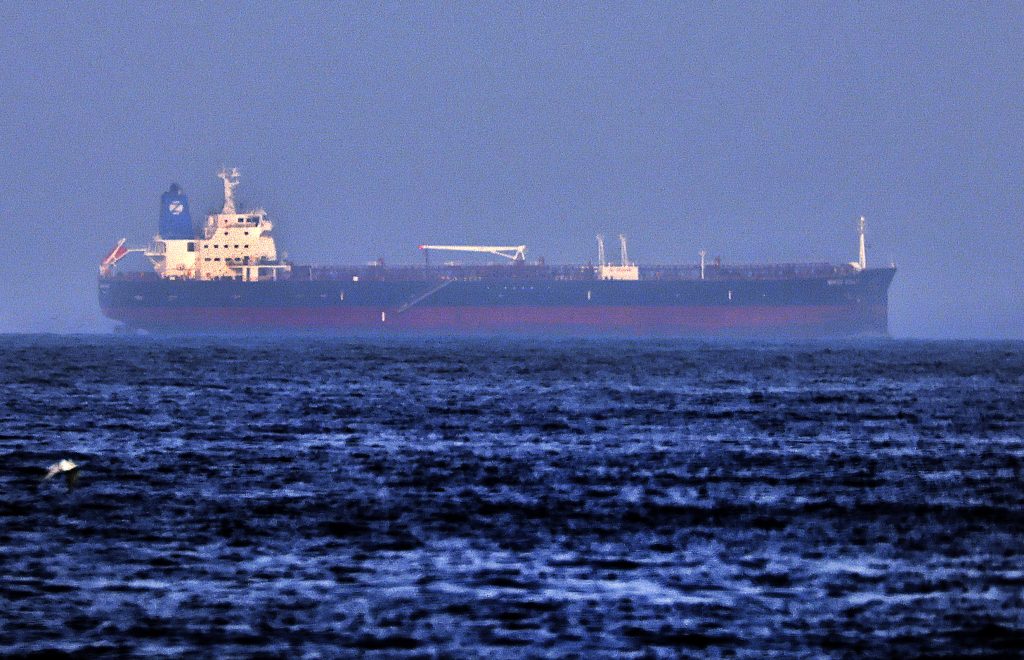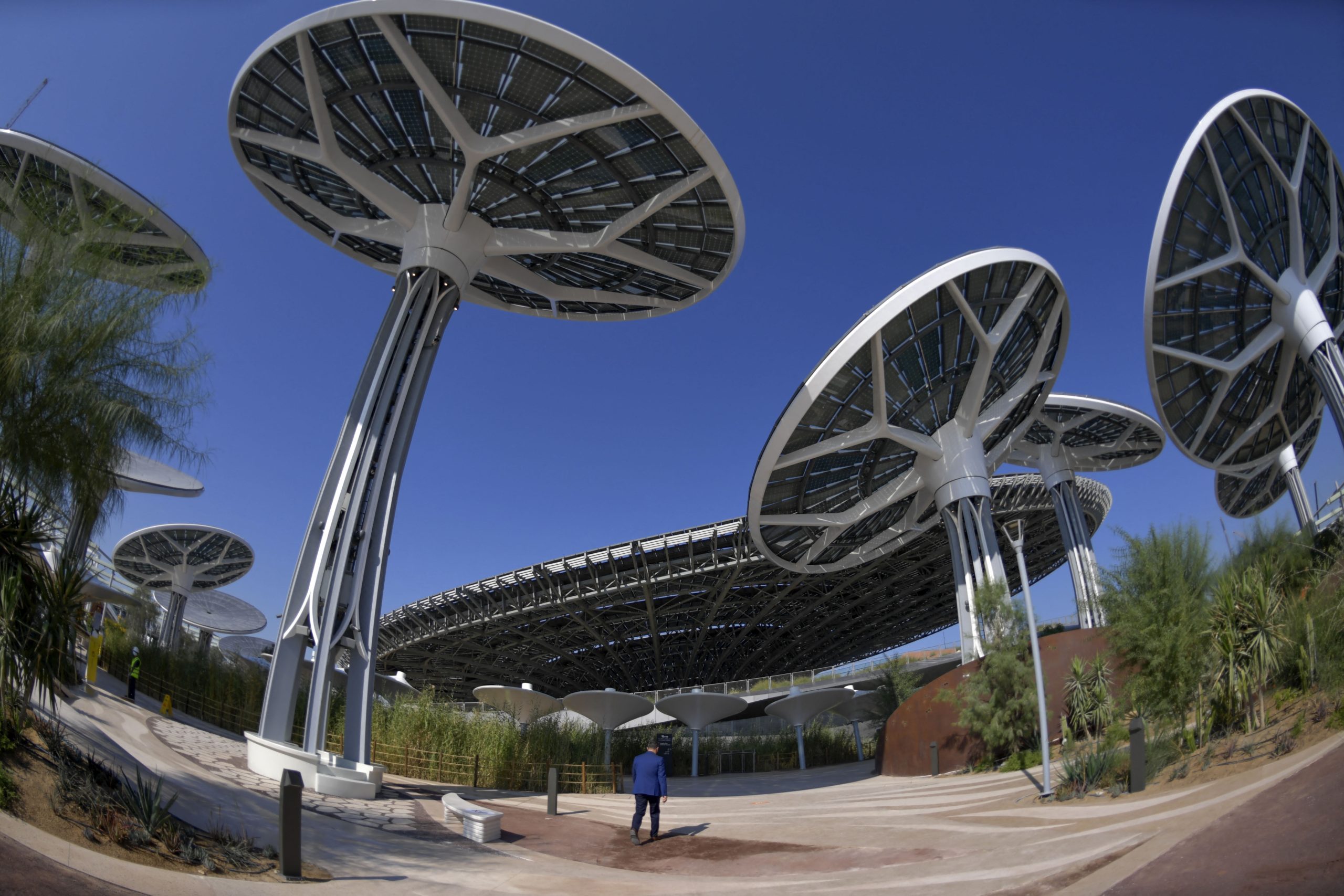
- 05 May 2022
Socio-cultural Developments in the UAE – Trailblazer in a Shifting Landscape
(This event is organised by MEI Political Economy research cluster.)
The UAE has emerged as the most iconic and widely publicised of all GCC countries in the past years. Its unique and stunning landmarks, cultural and sporting events and magnetism for talent and workforce from the wider region and beyond gave it a special position among its peers. This was further enhanced by the World Expo hosted to coincide with the country’s 50th anniversary. These were all complemented by a robust political and military role at times seen by critics as bordering on adventurism but toned down to more of a realpolitik posture as the country occupied a non-permanent seat in the United Nations Security Council this year.
The webinar examines the nature, pace and direction of the socio-cultural developments of the UAE. The objective of the webinar is to shed light on:
- the process of moving away from traditional tribal society towards nation state and what it has achieved in 50 years
- the socio-cultural aspects of the integration of an immigrant community into Emirati society outnumbering citizen population by 10:1
- the intent to formulate a moderate and inclusive contextualisation of Islam as an antidote to exclusion and extremism
- social aspects of providing adequate security in a volatile environment (human and national security)
- cultural underpinnings of building alliances that serve the continued safety, security and progress of the Emirates as a major regional center for trade, travel and culture.
The conversation also promises to contextualise the UAE’s transformation and policy initiatives with respect to its Gulf neighbours.
This public talk will be conducted online via Zoom on Thursday, 5 May 2022, from 8.00 pm to 9.30 pm (SGT). All are welcome to participate. This event is free, however, registration is compulsory. Successful registrants will receive a confirmation email with the Zoom details closer to the date of the event.
Image caption: A picture taken on January 16, 2021, shows solar panels used to generate renewable energy at the Sustainability Pavilion during a media tour at the Dubai Expo 2020, in the United Arab Emirates. – The six-month world fair, a milestone for the emirate which has splashed out $8.2 billion on the eye-popping venue in the hope of boosting its soft power and resetting the economy, opens its doors in October 2021. (Photo by Karim SAHIB / AFP)
Listen to the full event here:
Watch the full event here:
Read the Summary of Event Proceedings:
By Simran Kaur
Intern, Middle East Institute, National University of Singapore
The UAE declared its autonomy from Britain on 2 December 1971, recently celebrating 50 years of independence as a sovereign and federal state. In the past five decades, the UAE has blossomed from a cluster of desert communities within the Arabian Peninsula to a major international hub that is renowned for its rapid progress across all facets of existence. Throughout the Covid-19 pandemic, when much of the world had come to a still, the UAE remained active in its initiatives and continued to spout change. Megaprojects such as District 2020, further island developments and a forest community in Sharjah exemplify how the UAE’s landscape has transformed in spite of the stagnancy synonymous with the pandemic.
In spite of the ever-changing landscape, Dr Chay said that is it not an exaggeration to suggest that the UAE has, to some extent, neglected social changes in the face of the aforementioned material progress. Hence, this session takes upon itself to observe the UAE’s situation through a cultural and social lens.
To begin, Mr Baharoon cites three major trends that have catalysed change in the UAE at such a rapid pace:
- Federalisation: This references the transition from tribal society to a state; the coming together of seven emirates (Abu Dhabi, Dubai, Sharjah, Ras Al Khaimah, Ajman, Umm Al Quwain, and Fujairah) into one unity. The notion of alliances has always been a cultural value of tribal society and hence, it was not dissentient to create a power-sharing system of governance that allowed diverse individuals to not only work together but thrive together. Rather than throwing away the foundations of tribes, there was a transition to build on the strengths of each individual emirate into a new state.
- Integration: The UAE thrives on the realisation that differences is not a weakness but a strength. The synthesis of differences can be particularly exemplified in the diversification of the economy in order to move away from its dependence on oil wealth. With the recent declaration of 100% ownership over businesses, the UAE has reaffirmed itself as an emerging market and a global hub for foreign investment. Moreover, rather than solely supporting the regional Gulf Air, the UAE invested in Emirates Airlines. This unorthodox decision was not shunned away by the state and has shown excellent results today.
- Expansion: The UAE constantly looks into the future, questioning how it can transition local impact to a global scale. The state boasts a migrant community that is 10 times the size of its original population. This ideology of tolerance is not only valuable to cultivate region-wide but also consider in political initiatives. The UAE’s national identity is uniquely values-based and it is critical to shaping how said identity is perceived not only within the state but internationally.
To elaborate on the national identity of the UAE, Dr Narayanappa speaks about his experience as an Indian expatriate in the country. He comments that the identity of an expatriate in the UAE challenges the notion common in the Gulf that expatriates are temporary, contractual workers. Rather, he cites that they are in a “permanent state of impermanence” as they merge their home identities, religious ideologies and cultural values with that of the UAE. This creates a unique breed of individuals that are readily accepting of the international community and can be perceived as global citizens.
He then touches on the similarities between India and the UAE. India is home to a total of 121 languages and 270 mother tongues, as well as a comprehensive account of almost every major faith practiced internationally today. For this reason, amongst others, India is unitary in nature, which can be likened to the UAE with its vast migrant population. He also adds that although India is not part of any major military alliance, it maintains close relationships with most major powers and friendly relations with states in the developing world. This is a strategy that the UAE has recently adopted as well, perhaps particularly exemplified through its reconciliation with Qatar. The UAE has practiced a shift from redefining its foreign policy: reactive to proactive, idealist to realist, receiving to providing. As Dr Narayanappa identifies the similarities between India and UAE, there is a notion that the UAE aims for modernisation beyond westernisation.
Dr Soubrier, whose research focuses on foreign policies of the Gulf, discusses the UAE’s evolving and widening approach to security, one that is increasingly related to people and the population. The UAE’s traditional approach to security was entirely undertaken in political and military terms, an ideology that is common throughout the Gulf. This is demonstrated through territorial integrity and external aggression and it is a means to protect regime security rather than national security. However, it is equally critical to acknowledge the other pillars of security––economic, societal and environmental, which can be more broadly referred to as human security. The Gulf region is among the most acutely vulnerable regions to climate change. According to Germany’s Max Planck Institute, many cities may become uninhabitable before the end of the century. Despite the pressing nature of climatic issues, many states in the Gulf, including the UAE, have failed to react decisively.
In the same vein, the Gulf is incredibly sensitive to global market disruptions as majority of the demand in most of its countries is met by imports. In the UAE specifically, more than 80% of the food supply is sourced from international markets. During the pandemic, alarming figures of food insecurity were reached––not because the UAE had insufficient funds but because supply chains were disrupted or other countries refused to sell. On this basis, it is imperative that the UAE, among other Gulf nations, address its hyper-dependence on food and develop innovative strategies that align with a local growth model.
Having said that, Dr Soubrier acknowledges that some of these initiatives clash with pillars of political stability. For example, the UAE is one of the most water-scarce countries in the world; however, it simultaneously has one of the highest per-capita bottled water use. In response, the government has been looking to increase water supply, as opposed to issuing policies that attempt to decrease the population’s water demand. This decision aligns with the traditional dynamics between the leadership and society that has contributed to the political stability and trust present in the UAE. The necessity to address wasteful consumption patterns in the name of human security has the potential to threaten these foundations of political security, placing the UAE in a complex situation.
Highlights from the Q&A Session
Is there a growing unemployment problem affecting Emiratis? How does the UAE plan to help university graduates access private sector jobs that may favour better-skilled expatriates?
Mr Baharoon explains that this issue is not exclusive to the Arab world and is prevalent in all countries. He suggests that unemployment in the UAE does not exist because of a lack of jobs but rather, because people within the local community want the best kinds of jobs.
The UAE has lightened its hand on forcing corporations to take up a certain employment quota. He agrees with this decision for he believes the private sector should remain “private”. Moreover, he sees employment as something that should not be given to individuals, for it renders the population overdependent on the government. Instead, he commends the UAE for increasing employee abilities by refining the education system and making it more attuned to the job market. This serves as a long term solution for university graduates.
Touching on crucial health challenges like obesity, diabetes and heart diseases, what more can the UAE do in terms of boosting the health sector in light of a post-pandemic environment?
Dr Soubrier states that it is important to implement the sentiments of public health importance pushed during the pandemic but the international community has struggled to do so. She suggests that the UAE persist in its guided education to cultivate individuals towards jobs that support the country.
With reference to the Abraham Accords, are there challenges in terms of reactions to change – on the geopolitical or community level?
Dr Narayanappa and Dr Soubrier agree that the Abraham Accords demonstrate pragmatism as its finest, in that states possess the ability to cooperate in the name of common interest. The former states that while bilateralism is over-saturated, plurilateralism has the potential to reshape the topography of long-lasting historical conflicts. However, he recognises that there are certain ideas that states will not compromise on––for Israel, it’s national security and for the UAE, it’s the Arabian solidarity with Palestine. Nonetheless, he believes that the UAE is capable of pragmatism and cooperation. They can extend these efforts into the realms of cyber security and artificial intelligence.
Dr Soubrier adds that the reason why Saudi Arabia hasn’t signed the Abraham Accords is that there is likely more pushback in the state to be more considerate towards the Palestinian cause. On a community level, such a reaction is less prevalent in the UAE where the population is smaller and messages to the public are more strategically focused.
About the Speakers
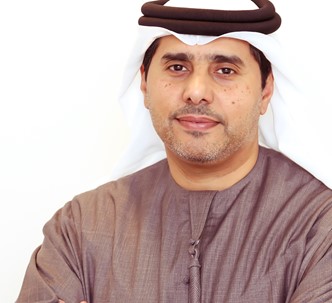
Director General
Dubai Public Policy Research Center (b’huth)
Dr Janardhan Narayanappa
Senior Research Fellow
Anwar Gargash Diplomatic Academy, Abu Dhabi
Dr Emma Soubrier
Visiting Scholar
George Washington University
[Moderator] Dr Clemens Chay
Research Fellow
Middle East Institute, NUS
Mr Mohammed Baharoon is the Director General of Dubai Public Policy Research Center (b’huth), established in 2002 in Dubai, UAE.
He pursued a career in media as a reporter for the Al Arabi magazine, Al Ittihad newspaper and was then Editor for the Gulf Defence magazine before starting as director of research at b’huth and focusing on the interplay between geostrategy and policy making in governance, stability, capacity building and future proofing.
Mr Baharoon has also worked as Deputy Director of Watani – UAE’s first initiatives on national identity – and is also a founding member of the board of the Bussola Institute – a think tank in Brussels that focuses on the changing and emerging aspects of partnership between the European Union and the Gulf Cooperation Council member states.
As part of his interest in the emerging geostrategic space of the Arabian Peninsula, Mohammed looks at Iran as part of the development of the area as a major trade artery. This has implications on cultivating a sustainable relationship with its neighbours on the Arabian Gulf, Arabian Sea, the Red Sea or the Mediterranean. Iran is a major component of that space and becoming more adaptable to the modernisation process will allow it become part of the future development of the region.
He has a Masters degree in English Literature from Texas Tech University (1995) and graduated as an English major from Kuwait University in 1987.
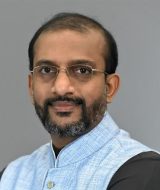
With over 25 years of regional expertise, Dr N. Janardhan analyses and unravels the evolving multi-dimensional partnerships between the countries of the Gulf and Asia. As senior research fellow at the Anwar Gargash Diplomatic Academy, Abu Dhabi, he offers diplomats PGD, MA and executive training courses on the Gulf and Asian foreign policies. The last of his four books was The Arab Gulf’s Pivot to Asia: From Transactional to Strategic Partnerships (ed., Gerlach, 2020). With a PhD from Jawaharlal Nehru University, New Delhi, Dr Janardhan is also a non-resident fellow at the Arab Gulf States Institute in Washington and Managing Assistant Editor of the Journal of Arabian Studies (Routledge). He is a regular contributor to international think tank activities, academic publications and media outlets, as well as a keen sportsperson.
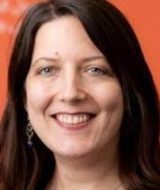
Dr Emma Soubrier is a visiting scholar at the Institute for Middle East Studies at the George Washington University in the United States. She is also a non-resident fellow at the Arab Gulf States Institute in Washington DC and an associate researcher at the Centre Michel de l’Hospital, Université Clermont Auvergne. Her research focuses on the security strategies and foreign policies of the countries of the Gulf Cooperation Council, particularly the UAE, Qatar and Saudi Arabia and the political economy of arms trade in the Gulf. Dr Soubrier has published numerous articles and book chapters in French and English on Gulf security issues. Her work looks to promote a renewed approach to security that no longer focuses merely on the political and military aspects of security but includes a broader look at people-centric dimensions (human security and societal and environmental security, in particular). Her forthcoming book, Qatar and the United Arab Emirates: Diverging Paths to Regional and Global Power (Boulder: Lynne Rienner, 2022), is based on her PhD thesis which received a dissertation award from the Institute for Higher National Defense Studies (France) in 2018. As part of a research team with the World Peace Foundation at Tufts University, she is also currently working on a project on defense industries, foreign policy and armed conflict funded by the Carnegie Corporation of New York.
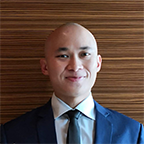
[Moderator] Dr Clemens Chay is a research fellow at the National University of Singapore’s Middle East Institute. He heads the Diffusion of Ideas-Gulf research cluster and spearheads a public education series “Bridging the Gulf”. His research focuses on the history and politics of the Gulf states, with a particular emphasis on Kuwait, Oman and Saudi Arabia. Prior to joining MEI, he was the Al-Sabah fellow at Durham University, where he taught at and completed his PhD. His most recent academic publications include a chapter that examines Kuwait’s parliamentary politics in The Routledge Handbook of Persian Gulf Politics (2020) and another article appearing in the Journal of Arabian Studies, “The Dīwāniyya Tradition in Modern Kuwait: An Interlinked Space and Practice.” His commentaries also feature across different outlets, including ISPI, KFCRIS and Cambridge MENAF. Dr Chay is currently working on a book project related to Kuwait’s diwaniyyas.

